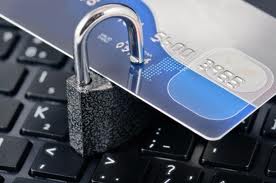There are numerous threats to the security of personal information online. Many of these hazards can cause serious material loss and immense reputation damage for the unfortunate individual who has their personal information misused or abused by someone with malicious intentions. Being dispossessed of their identity is among the worst violations that one can suffer when the unscrupulous actions of a hacker are perpetrated against them. This identity theft threat is one that is seemingly growing more and more ominous as technology advances and increasing numbers of Americans get reliable and consistent access to the World Wide Web. Fortunately, there are a number of measures that can be employed to combat the dangers posed to the privacy of their various types of sensitive data.
What is identity theft?
This is a question that is increasingly finding its way onto the lips of many Americans. In short, the term identity theft refers to the practice of stealing another individual’s identity. From a practical perspective, it results in the identity thief assuming control of the victim’s persona. They can also assume control of many of the financial and other resources that the victim has under their administration or at their disposal. As is to be expected, there are numerous negative consequences that can flow from such a violation. The following are just a few of them:
- Material loss
Oftentimes, the stolen identities are used by the identity thieves to materially enrich themselves. It is standard practice for them to use the newly acquired financial resources that were formerly under the victim’s control to purchase and contract a variety of goods and services respectively. Stolen credit card and bank account information is often what is used by the scammers to facilitate these fraudulent transactions. Such an unfortunate situation can lead to huge liabilities and debts being racked up against the victim’s name.
- Reputational damage
The damage which can be done to the victim’s reputation often proves to be irreparable. The actions alluded to above can permanently tarnish their public image while seriously affecting their credibility in the eyes of all the people who are not privy to the knowledge that their identity was stolen and manipulated by a miscreant. It is also quite likely that the hapless individual who is the target of such a subversive act will have their credit ruined. This can have far-reaching and quite profound implications on their life going forward.
The abovementioned potential negative implications of having one’s identity stolen affirm the need for individuals to do all that they can to ensure Internet security.
How to protect personal information online
Fortunately for users of the Internet, there are a number of steps that they can take to keep their sensitive and highly personal information out of the clutches of opportunistic identity thieves. A few of these precautionary measures are outlined below:
- Keep passwords private
Passwords are routinely required to access many of the accounts that individuals manage online. This characteristic typically applies irrespective of the type of account to which the reference is being made. An identity thief can do copious amounts of damage if they get their hands on such passwords. This is particularly likely in instances where this access information is the key to gaining control of financial assets such as the balance sitting in the targeted individual’s bank account. The cash stored therein can be easily and quickly channeled elsewhere by the swindler. These dangers make it imperative for all such passwords to be kept confidential – if at all possible.
- Watch what is said (or posted) on social media
Social media sites are increasingly becoming vibrant meeting places for people of all persuasions and from all backgrounds. They afford virtually anyone the opportunity to connect and communicate with other individuals all over the world. This high level of “connectivity” also opens the door for individuals with questionable backgrounds and shady intentions to potentially gain access to the personal information of individuals with whom they connect. As such, it is critical that all users of these websites take due care to ensure that they do not disclose too much sensitive info on these forums because it is practically impossible to be 100% sure of just who will have access to it eventually.
- Ensure that data transmitted is encrypted
Encrypting data is a means by which it can be made undecipherable to anyone who is not duly authorized to receive or view it. There are numerous applications on the market that can provide this type of protection to sensitive information transfers by scrambling them. There are many software programs that can be independently purchased and installed by the user. There are also numerous browsers which come with such protective mechanisms already built in. Particularly when conducting online transactions, it is imperative that the user ensures that the telltale protective “lock” icon appears in the browser’s status bar before proceeding.
Internet safety, specifically as it regards the privacy of personal information, can be significantly enhanced when the abovementioned precautionary measures are taken by individuals who use the World Wide Web.
The protection of personal information online is one issue that attracts considerable attention in today’s America. There are many threats that are posed to the integrity of such information from various sources. Identity theft is one of the most potent and persistent dangers out there. However, there are a number of measures which can be employed to mitigate the aforementioned threat.
